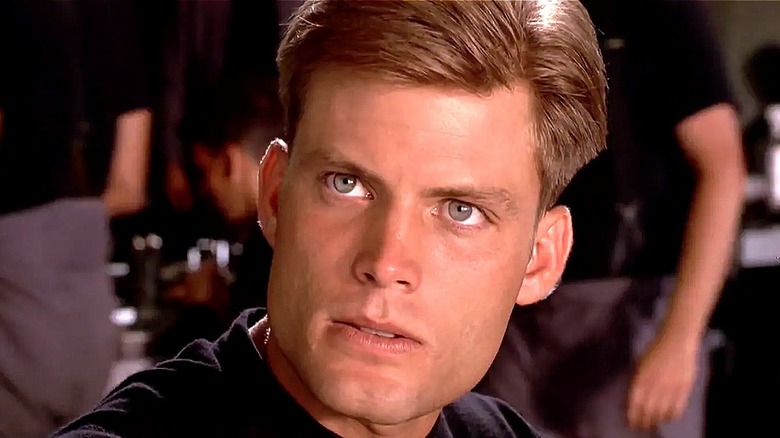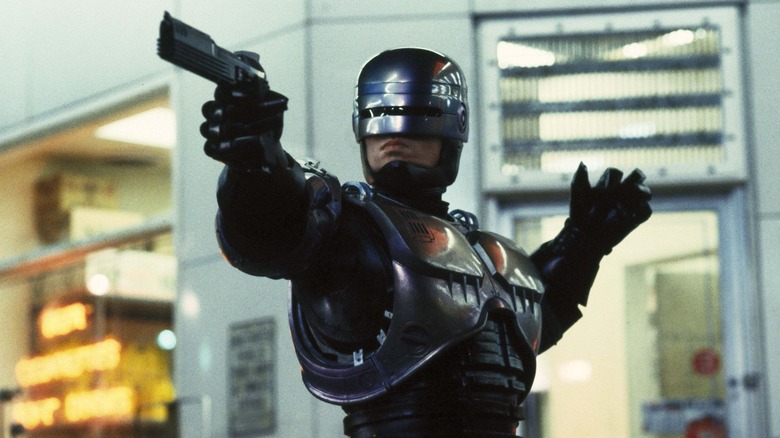Why Some Fans Think Starship Troopers Is A Sequel To RoboCop
"Starship Troopers" is arguably one of the most popular cult films around. While the $105 million satirical science fiction movie was met with a mixed response from critics and a tepid box office draw in 1997 — drawing in $54.8 million domestically, according to Box Office Mojo — it has since gained a strong following and four sequels, including two live action and two animated features. The movie has a rather simple premise, set in a future in which the human race is battling giant alien bugs for survival. The cast is lead by Casper Van Dien as protagonist Johnny Rico, with supporting roles being filled out by character actors such as Neil Patrick Harris and Jake Busey. The film's best pleasures, however, come from director Paul Verhoeven's satirical eye towards a society taken over by militarism and unaware of its own lack of individualism.
Like much of Verhoeven's work, fans have theorized and broken down "Starship Troopers" theories and the film's potential hidden meanings for years, as well as possible connections to other works, including Verhoeven's own "Robocop." The 1987 feature presents a Detroit city where crime is rampant and police have been over-militarized, turning to weaponized machines and eventually transforming a dead cop (Peter Weller) into a robot officer with deadly capabilities and the seeming ability to ignore human emotion and not question orders.
According to a fan theory from Reddit, "Starship Troopers" could act as a distant sequel to "Robocop," one of Verhoeven's definitive hits. The beginnings of the government in "Starship Troopers" can be found in "RoboCop," according to the theory, if you look at the similar crises the worlds are facing, as well as the radicalization of authority figures.
Starship Troopers and RoboCop take place in the same universe, according to the theory
Per the theory, Omni Consumer Products in "RoboCop" would essentially transform into the Terran Federation in "Starship Troopers," as the latter government has the same goals of replacing democracy and controlling media and the masses as OCP, the corporation trying to redefine policing in Detroit and take control with their advanced machinery. Both groups value "order and efficiency" above "humanity." The theory suggests that the in-world advertisements and propaganda in "RoboCop" and "Starship Troopers" connect them most concretely, both suggesting worlds of corporate control and unquestionable loyalty. Other connective tissue between the two movies includes details such as men and women sharing locker rooms, the idea of such traditional gender separation being obsolete, as well as the similar looks of artificial limbs, with OCP technology presumably becoming the framework for the Terran Federation later.
Some, though, have rejected the theory as wishful thinking. "Many of the same traits as Starship Troopers but to say they're connected is kind of BS. That's a 300+ year gap from only going from one cyborg cop to Starship troopers pretty much fighting against the same thing, fascism," user RoboDaddy91 said in response. Another commented that while "RoboCop" was certainly about more than just problems in Detroit, it was "by no means" about the world at large, instead acting as a critique of American corporatism, similar to "Troopers."

